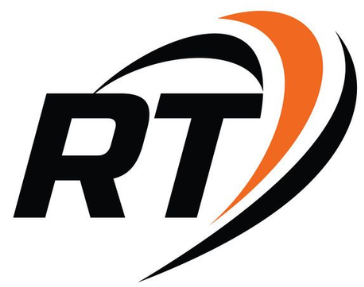Sports games are often a thrilling mix of excitement, camaraderie, and, sometimes, unexpected moments that catch the attention of fans and media alike. Such was the case recently during an Edmonton Oilers game when a fan’s brazen act in the stands sparked waves of reactions, both in the arena and online. The incident, dubbed the “Oilers fan flash,” quickly became a hot topic of conversation, not just for what happened, but because the incident wasn’t censored during the live broadcast, leaving many viewers wondering about sports broadcasting, public decency, and fan behavior.
This article will delve into the incident, examine the wider implications it has for live sports entertainment, and explore the debate over whether such moments should be censored.
What Happened: The “Oilers Fan Flash”
The Edmonton Oilers, a National Hockey League (NHL) team, have a fiercely dedicated fan base. During a particularly heated game at Rogers Place in Edmonton, an enthusiastic female fan decided to express her support in an unconventional way — by briefly flashing her chest to the crowd. While such incidents are rare in the typically more controlled environments of professional sports, this act was caught on the jumbotron and broadcasted to thousands of viewers without any real-time censorship.
The flash, while brief, was enough to spark immediate reactions from fans both in the arena and at home. Some cheered, while others expressed discomfort. The fact that it went uncensored, in an age where sports broadcasting is subject to stringent content guidelines, raised eyebrows.
The Uncensored Broadcast: A Broadcasting Dilemma
One of the most significant aspects of this incident is that it was not censored on live television. Typically, broadcasters have the ability to delay live footage by a few seconds, giving producers enough time to cut away from or blur inappropriate or unexpected moments. The fact that this flash was not intercepted has led to speculation about what went wrong with the broadcast.
Broadcasters, particularly in professional sports, aim to maintain a family-friendly viewing experience. The uncensored moment sparked immediate criticism from parents who felt the content was inappropriate for younger viewers. Social media lit up with reactions, some finding humor in the situation, while others voiced concern about the failure of broadcasting safeguards.
This raises an important question: Should broadcasters bear responsibility for censoring spontaneous moments during live events, or is it an unavoidable risk that comes with the territory of live television?
Fan Behavior at Sports Games: Where Do We Draw the Line?
While the Oilers fan’s flash has generated much discussion, it also brings attention to the broader topic of fan behavior at live sports events. Stadiums are places where emotions run high. Fans scream, chant, and show off their team’s colors in various ways. However, there’s always a line between passionate support and inappropriate conduct.
Public flashing is generally regarded as indecent exposure and can lead to legal consequences, though the legality varies by jurisdiction. At large sporting events, it’s essential to maintain a certain level of decorum to ensure that everyone — including families with children — feels comfortable attending.
There’s also the question of whether security measures at sports venues are sufficient in preventing these kinds of incidents. Should stadium staff or ushers have stepped in to address the fan’s behavior more quickly?
Some argue that fans should be allowed to express themselves, even if it means occasionally toeing the line of public decency. Others believe that strict enforcement of rules is necessary to ensure that events remain suitable for all audiences.
The Role of Social Media: Amplifying the Moment
No longer confined to just a momentary flash in the stands, the incident quickly went viral on social media. Platforms like Twitter, Reddit, and TikTok were flooded with video clips and memes of the event, as people from around the world weighed in on the act and the failure to censor it. The hashtag #OilersFanFlash trended for hours as people expressed a mix of humor, outrage, and curiosity.
The viral nature of the event led to further discussions about the role of social media in amplifying moments like these. While sports events have always had their share of bizarre and unexpected moments, social media’s ability to capture and spread these incidents in real-time has added a new dimension to the fan experience. In this case, a split-second decision by one fan was seen by millions worldwide.
However, this also raises concerns about privacy and the ethical implications of sharing such moments online without consent. Should platforms have stricter controls in place to prevent the spread of potentially embarrassing or controversial content, or is the free-for-all nature of social media simply part of modern life?
The Legal Ramifications: Public Decency and Exposure
While the Oilers fan flash may have seemed like a lighthearted moment to some, it brings with it potential legal consequences. Public indecency laws in many places prohibit acts of exposure in public spaces, and professional sports arenas are no exception. Although incidents like these are often handled on a case-by-case basis, there is a real risk of fines or other legal action against individuals who engage in such behavior.
Moreover, the broadcasting network could also face scrutiny or fines from regulatory bodies for failing to censor the incident. In many countries, broadcasting decency laws prohibit the airing of nudity or other explicit content during certain hours, especially when children are likely to be watching.
While it’s unclear whether any legal action has been taken against the fan or the network, the incident has undoubtedly raised awareness of the potential legal implications of such behavior at public events.
Conclusion: Lessons Learned from the Oilers Fan Flash Incident
The Oilers fan flash incident serves as a reminder that live sports events, while thrilling and full of energy, are still public spaces with rules and expectations of decorum. Fans may feel empowered by the anonymity of the crowd, but their actions can have far-reaching consequences, both legally and socially.
For broadcasters, the incident highlights the importance of maintaining tight controls over live footage to avoid the airing of inappropriate content. As technology advances and the ability to stream games live becomes even more widespread, the pressure on broadcasters to ensure family-friendly content will only increase.
The debate over fan behavior and censorship will likely continue as more incidents like this occur. Whether seen as an amusing one-off or a serious breach of public decency, the Oilers fan flash incident will go down in history as a moment that sparked discussion on the evolving nature of live sports entertainment and the responsibilities of fans, broadcasters, and social media in today’s world.

